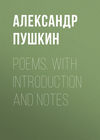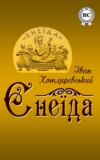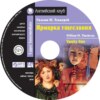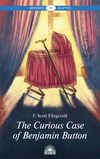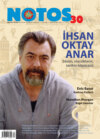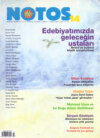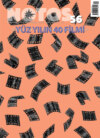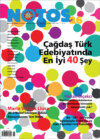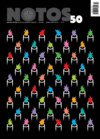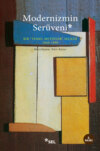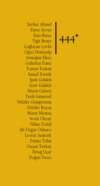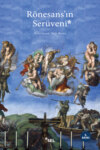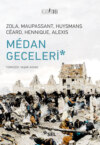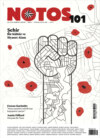Kitabı oku: «Best Russian Short Stories», sayfa 13
THE BET
BY ANTON P. CHEKHOV
I
It was a dark autumn night. The old banker was pacing from corner to corner of his study, recalling to his mind the party he gave in the autumn fifteen years before. There were many clever people at the party and much interesting conversation. They talked among other things of capital punishment. The guests, among them not a few scholars and journalists, for the most part disapproved of capital punishment. They found it obsolete as a means of punishment, unfitted to a Christian State and immoral. Some of them thought that capital punishment should be replaced universally by life-imprisonment.
"I don't agree with you," said the host. "I myself have experienced neither capital punishment nor life-imprisonment, but if one may judge a priori, then in my opinion capital punishment is more moral and more humane than imprisonment. Execution kills instantly, life-imprisonment kills by degrees. Who is the more humane executioner, one who kills you in a few seconds or one who draws the life out of you incessantly, for years?"
"They're both equally immoral," remarked one of the guests, "because their purpose is the same, to take away life. The State is not God. It has no right to take away that which it cannot give back, if it should so desire."
Among the company was a lawyer, a young man of about twenty-five. On being asked his opinion, he said:
"Capital punishment and life-imprisonment are equally immoral; but if I were offered the choice between them, I would certainly choose the second. It's better to live somehow than not to live at all."
There ensued a lively discussion. The banker who was then younger and more nervous suddenly lost his temper, banged his fist on the table, and turning to the young lawyer, cried out:
"It's a lie. I bet you two millions you wouldn't stick in a cell even for five years."
"If you mean it seriously," replied the lawyer, "then I bet I'll stay not five but fifteen."
"Fifteen! Done!" cried the banker. "Gentlemen, I stake two millions."
"Agreed. You stake two millions, I my freedom," said the lawyer.
So this wild, ridiculous bet came to pass. The banker, who at that time had too many millions to count, spoiled and capricious, was beside himself with rapture. During supper he said to the lawyer jokingly:
"Come to your senses, young roan, before it's too late. Two millions are nothing to me, but you stand to lose three or four of the best years of your life. I say three or four, because you'll never stick it out any longer. Don't forget either, you unhappy man, that voluntary is much heavier than enforced imprisonment. The idea that you have the right to free yourself at any moment will poison the whole of your life in the cell. I pity you."
And now the banker, pacing from corner to corner, recalled all this and asked himself:
"Why did I make this bet? What's the good? The lawyer loses fifteen years of his life and I throw away two millions. Will it convince people that capital punishment is worse or better than imprisonment for life? No, no! all stuff and rubbish. On my part, it was the caprice of a well-fed man; on the lawyer's pure greed of gold."
He recollected further what happened after the evening party. It was decided that the lawyer must undergo his imprisonment under the strictest observation, in a garden wing of the banker's house. It was agreed that during the period he would be deprived of the right to cross the threshold, to see living people, to hear human voices, and to receive letters and newspapers. He was permitted to have a musical instrument, to read books, to write letters, to drink wine and smoke tobacco. By the agreement he could communicate, but only in silence, with the outside world through a little window specially constructed for this purpose. Everything necessary, books, music, wine, he could receive in any quantity by sending a note through the window. The agreement provided for all the minutest details, which made the confinement strictly solitary, and it obliged the lawyer to remain exactly fifteen years from twelve o'clock of November 14th, 1870, to twelve o'clock of November 14th, 1885. The least attempt on his part to violate the conditions, to escape if only for two minutes before the time freed the banker from the obligation to pay him the two millions.
During the first year of imprisonment, the lawyer, as far as it was possible to judge from his short notes, suffered terribly from loneliness and boredom. From his wing day and night came the sound of the piano. He rejected wine and tobacco. "Wine," he wrote, "excites desires, and desires are the chief foes of a prisoner; besides, nothing is more boring than to drink good wine alone," and tobacco spoils the air in his room. During the first year the lawyer was sent books of a light character; novels with a complicated love interest, stories of crime and fantasy, comedies, and so on.
In the second year the piano was heard no longer and the lawyer asked only for classics. In the fifth year, music was heard again, and the prisoner asked for wine. Those who watched him said that during the whole of that year he was only eating, drinking, and lying on his bed. He yawned often and talked angrily to himself. Books he did not read. Sometimes at nights he would sit down to write. He would write for a long time and tear it all up in the morning. More than once he was heard to weep.
In the second half of the sixth year, the prisoner began zealously to study languages, philosophy, and history. He fell on these subjects so hungrily that the banker hardly had time to get books enough for him. In the space of four years about six hundred volumes were bought at his request. It was while that passion lasted that the banker received the following letter from the prisoner: "My dear gaoler, I am writing these lines in six languages. Show them to experts. Let them read them. If they do not find one single mistake, I beg you to give orders to have a gun fired off in the garden. By the noise I shall know that my efforts have not been in vain. The geniuses of all ages and countries speak in different languages; but in them all burns the same flame. Oh, if you knew my heavenly happiness now that I can understand them!" The prisoner's desire was fulfilled. Two shots were fired in the garden by the banker's order.
Later on, after the tenth year, the lawyer sat immovable before his table and read only the New Testament. The banker found it strange that a man who in four years had mastered six hundred erudite volumes, should have spent nearly a year in reading one book, easy to understand and by no means thick. The New Testament was then replaced by the history of religions and theology.
During the last two years of his confinement the prisoner read an extraordinary amount, quite haphazard. Now he would apply himself to the natural sciences, then he would read Byron or Shakespeare. Notes used to come from him in which he asked to be sent at the same time a book on chemistry, a text-book of medicine, a novel, and some treatise on philosophy or theology. He read as though he were swimming in the sea among broken pieces of wreckage, and in his desire to save his life was eagerly grasping one piece after another.
II
The banker recalled all this, and thought:
"To-morrow at twelve o'clock he receives his freedom. Under the agreement, I shall have to pay him two millions. If I pay, it's all over with me. I am ruined for ever …"
Fifteen years before he had too many millions to count, but now he was afraid to ask himself which he had more of, money or debts. Gambling on the Stock-Exchange, risky speculation, and the recklessness of which he could not rid himself even in old age, had gradually brought his business to decay; and the fearless, self-confident, proud man of business had become an ordinary banker, trembling at every rise and fall in the market.
"That cursed bet," murmured the old man clutching his head in despair… "Why didn't the man die? He's only forty years old. He will take away my last farthing, marry, enjoy life, gamble on the Exchange, and I will look on like an envious beggar and hear the same words from him every day: 'I'm obliged to you for the happiness of my life. Let me help you.' No, it's too much! The only escape from bankruptcy and disgrace – is that the man should die."
The clock had just struck three. The banker was listening. In the house every one was asleep, and one could hear only the frozen trees whining outside the windows. Trying to make no sound, he took out of his safe the key of the door which had not been opened for fifteen years, put on his overcoat, and went out of the house. The garden was dark and cold. It was raining. A damp, penetrating wind howled in the garden and gave the trees no rest. Though he strained his eyes, the banker could see neither the ground, nor the white statues, nor the garden wing, nor the trees. Approaching the garden wing, he called the watchman twice. There was no answer. Evidently the watchman had taken shelter from the bad weather and was now asleep somewhere in the kitchen or the greenhouse.
"If I have the courage to fulfil my intention," thought the old man, "the suspicion will fall on the watchman first of all."
In the darkness he groped for the steps and the door and entered the hall of the garden-wing, then poked his way into a narrow passage and struck a match. Not a soul was there. Some one's bed, with no bedclothes on it, stood there, and an iron stove loomed dark in the corner. The seals on the door that led into the prisoner's room were unbroken.
When the match went out, the old man, trembling from agitation, peeped into the little window.
In the prisoner's room a candle was burning dimly. The prisoner himself sat by the table. Only his back, the hair on his head and his hands were visible. Open books were strewn about on the table, the two chairs, and on the carpet near the table.
Five minutes passed and the prisoner never once stirred. Fifteen years' confinement had taught him to sit motionless. The banker tapped on the window with his finger, but the prisoner made no movement in reply. Then the banker cautiously tore the seals from the door and put the key into the lock. The rusty lock gave a hoarse groan and the door creaked. The banker expected instantly to hear a cry of surprise and the sound of steps. Three minutes passed and it was as quiet inside as it had been before. He made up his mind to enter.
Before the table sat a man, unlike an ordinary human being. It was a skeleton, with tight-drawn skin, with long curly hair like a woman's, and a shaggy beard. The colour of his face was yellow, of an earthy shade; the cheeks were sunken, the back long and narrow, and the hand upon which he leaned his hairy head was so lean and skinny that it was painful to look upon. His hair was already silvering with grey, and no one who glanced at the senile emaciation of the face would have believed that he was only forty years old. On the table, before his bended head, lay a sheet of paper on which something was written in a tiny hand.
"Poor devil," thought the banker, "he's asleep and probably seeing millions in his dreams. I have only to take and throw this half-dead thing on the bed, smother him a moment with the pillow, and the most careful examination will find no trace of unnatural death. But, first, let us read what he has written here."
The banker took the sheet from the table and read:
"To-morrow at twelve o'clock midnight, I shall obtain my freedom and the right to mix with people. But before I leave this room and see the sun I think it necessary to say a few words to you. On my own clear conscience and before God who sees me I declare to you that I despise freedom, life, health, and all that your books call the blessings of the world.
"For fifteen years I have diligently studied earthly life. True, I saw neither the earth nor the people, but in your books I drank fragrant wine, sang songs, hunted deer and wild boar in the forests, loved women… And beautiful women, like clouds ethereal, created by the magic of your poets' genius, visited me by night and whispered to me wonderful tales, which made my head drunken. In your books I climbed the summits of Elbruz and Mont Blanc and saw from there how the sun rose in the morning, and in the evening suffused the sky, the ocean and the mountain ridges with a purple gold. I saw from there how above me lightnings glimmered cleaving the clouds; I saw green forests, fields, rivers, lakes, cities; I heard syrens singing, and the playing of the pipes of Pan; I touched the wings of beautiful devils who came flying to me to speak of God… In your books I cast myself into bottomless abysses, worked miracles, burned cities to the ground, preached new religions, conquered whole countries…
"Your books gave me wisdom. All that unwearying human thought created in the centuries is compressed to a little lump in my skull. I know that I am cleverer than you all.
"And I despise your books, despise all worldly blessings and wisdom. Everything is void, frail, visionary and delusive as a mirage. Though you be proud and wise and beautiful, yet will death wipe you from the face of the earth like the mice underground; and your posterity, your history, and the immortality of your men of genius will be as frozen slag, burnt down together with the terrestrial globe.
"You are mad, and gone the wrong way. You take falsehood for truth and ugliness for beauty. You would marvel if suddenly apple and orange trees should bear frogs and lizards instead of fruit, and if roses should begin to breathe the odour of a sweating horse. So do I marvel at you, who have bartered heaven for earth. I do not want to understand you.
"That I may show you in deed my contempt for that by which you live, I waive the two millions of which I once dreamed as of paradise, and which I now despise. That I may deprive myself of my right to them, I shall come out from here five minutes before the stipulated term, and thus shall violate the agreement."
When he had read, the banker put the sheet on the table, kissed the head of the strange man, and began to weep. He went out of the wing. Never at any other time, not even after his terrible losses on the Exchange, had he felt such contempt for himself as now. Coming home, he lay down on his bed, but agitation and tears kept him a long time from sleeping…
The next morning the poor watchman came running to him and told him that they had seen the man who lived in the wing climb through the window into the garden. He had gone to the gate and disappeared. The banker instantly went with his servants to the wing and established the escape of his prisoner. To avoid unnecessary rumours he took the paper with the renunciation from the table and, on his return, locked it in his safe.
VANKA
BY ANTON P. CHEKHOV
Nine-year-old Vanka Zhukov, who had been apprentice to the shoemaker Aliakhin for three months, did not go to bed the night before Christmas. He waited till the master and mistress and the assistants had gone out to an early church-service, to procure from his employer's cupboard a small phial of ink and a penholder with a rusty nib; then, spreading a crumpled sheet of paper in front of him, he began to write.
Before, however, deciding to make the first letter, he looked furtively at the door and at the window, glanced several times at the sombre ikon, on either side of which stretched shelves full of lasts, and heaved a heart-rending sigh. The sheet of paper was spread on a bench, and he himself was on his knees in front of it.
"Dear Grandfather Konstantin Makarych," he wrote, "I am writing you a letter. I wish you a Happy Christmas and all God's holy best. I have no mamma or papa, you are all I have."
Vanka gave a look towards the window in which shone the reflection of his candle, and vividly pictured to himself his grandfather, Konstantin Makarych, who was night-watchman at Messrs. Zhivarev. He was a small, lean, unusually lively and active old man of sixty-five, always smiling and blear-eyed. All day he slept in the servants' kitchen or trifled with the cooks. At night, enveloped in an ample sheep-skin coat, he strayed round the domain tapping with his cudgel. Behind him, each hanging its head, walked the old bitch Kashtanka, and the dog Viun, so named because of his black coat and long body and his resemblance to a loach. Viun was an unusually civil and friendly dog, looking as kindly at a stranger as at his masters, but he was not to be trusted. Beneath his deference and humbleness was hid the most inquisitorial maliciousness. No one knew better than he how to sneak up and take a bite at a leg, or slip into the larder or steal a muzhik's chicken. More than once they had nearly broken his hind-legs, twice he had been hung up, every week he was nearly flogged to death, but he always recovered.
At this moment, for certain, Vanka's grandfather must be standing at the gate, blinking his eyes at the bright red windows of the village church, stamping his feet in their high-felt boots, and jesting with the people in the yard; his cudgel will be hanging from his belt, he will be hugging himself with cold, giving a little dry, old man's cough, and at times pinching a servant-girl or a cook.
"Won't we take some snuff?" he asks, holding out his snuff-box to the women. The women take a pinch of snuff, and sneeze.
The old man goes into indescribable ecstasies, breaks into loud laughter, and cries:
"Off with it, it will freeze to your nose!"
He gives his snuff to the dogs, too. Kashtanka sneezes, twitches her nose, and walks away offended. Viun deferentially refuses to sniff and wags his tail. It is glorious weather, not a breath of wind, clear, and frosty; it is a dark night, but the whole village, its white roofs and streaks of smoke from the chimneys, the trees silvered with hoar-frost, and the snowdrifts, you can see it all. The sky scintillates with bright twinkling stars, and the Milky Way stands out so clearly that it looks as if it had been polished and rubbed over with snow for the holidays…
Vanka sighs, dips his pen in the ink, and continues to write:
"Last night I got a thrashing, my master dragged me by my hair into the yard, and belaboured me with a shoe-maker's stirrup, because, while I was rocking his brat in its cradle, I unfortunately fell asleep. And during the week, my mistress told me to clean a herring, and I began by its tail, so she took the herring and stuck its snout into my face. The assistants tease me, send me to the tavern for vodka, make me steal the master's cucumbers, and the master beats me with whatever is handy. Food there is none; in the morning it's bread, at dinner gruel, and in the evening bread again. As for tea or sour-cabbage soup, the master and the mistress themselves guzzle that. They make me sleep in the vestibule, and when their brat cries, I don't sleep at all, but have to rock the cradle. Dear Grandpapa, for Heaven's sake, take me away from here, home to our village, I can't bear this any more… I bow to the ground to you, and will pray to God for ever and ever, take me from here or I shall die…"
The corners of Vanka's mouth went down, he rubbed his eyes with his dirty fist, and sobbed.
"I'll grate your tobacco for you," he continued, "I'll pray to God for you, and if there is anything wrong, then flog me like the grey goat. And if you really think I shan't find work, then I'll ask the manager, for Christ's sake, to let me clean the boots, or I'll go instead of Fedya as underherdsman. Dear Grandpapa, I can't bear this any more, it'll kill me… I wanted to run away to our village, but I have no boots, and I was afraid of the frost, and when I grow up I'll look after you, no one shall harm you, and when you die I'll pray for the repose of your soul, just like I do for mamma Pelagueya.
"As for Moscow, it is a large town, there are all gentlemen's houses, lots of horses, no sheep, and the dogs are not vicious. The children don't come round at Christmas with a star, no one is allowed to sing in the choir, and once I saw in a shop window hooks on a line and fishing rods, all for sale, and for every kind of fish, awfully convenient. And there was one hook which would catch a sheat-fish weighing a pound. And there are shops with guns, like the master's, and I am sure they must cost 100 rubles each. And in the meat-shops there are woodcocks, partridges, and hares, but who shot them or where they come from, the shopman won't say.
"Dear Grandpapa, and when the masters give a Christmas tree, take a golden walnut and hide it in my green box. Ask the young lady, Olga Ignatyevna, for it, say it's for Vanka."
Vanka sighed convulsively, and again stared at the window. He remembered that his grandfather always went to the forest for the Christmas tree, and took his grandson with him. What happy times! The frost crackled, his grandfather crackled, and as they both did, Vanka did the same. Then before cutting down the Christmas tree his grandfather smoked his pipe, took a long pinch of snuff, and made fun of poor frozen little Vanka… The young fir trees, wrapt in hoar-frost, stood motionless, waiting for which of them would die. Suddenly a hare springing from somewhere would dart over the snowdrift… His grandfather could not help shouting:
"Catch it, catch it, catch it! Ah, short-tailed devil!"
When the tree was down, his grandfather dragged it to the master's house, and there they set about decorating it. The young lady, Olga Ignatyevna, Vanka's great friend, busied herself most about it. When little Vanka's mother, Pelagueya, was still alive, and was servant-woman in the house, Olga Ignatyevna used to stuff him with sugar-candy, and, having nothing to do, taught him to read, write, count up to one hundred, and even to dance the quadrille. When Pelagueya died, they placed the orphan Vanka in the kitchen with his grandfather, and from the kitchen he was sent to Moscow to Aliakhin, the shoemaker.
"Come quick, dear Grandpapa," continued Vanka, "I beseech you for Christ's sake take me from here. Have pity on a poor orphan, for here they beat me, and I am frightfully hungry, and so sad that I can't tell you, I cry all the time. The other day the master hit me on the head with a last; I fell to the ground, and only just returned to life. My life is a misfortune, worse than any dog's… I send greetings to Aliona, to one-eyed Tegor, and the coachman, and don't let any one have my mouth-organ. I remain, your grandson, Ivan Zhukov, dear Grandpapa, do come."
Vanka folded his sheet of paper in four, and put it into an envelope purchased the night before for a kopek. He thought a little, dipped the pen into the ink, and wrote the address:
"The village, to my grandfather." He then scratched his head, thought again, and added: "Konstantin Makarych." Pleased at not having been interfered with in his writing, he put on his cap, and, without putting on his sheep-skin coat, ran out in his shirt-sleeves into the street.
The shopman at the poulterer's, from whom he had inquired the night before, had told him that letters were to be put into post-boxes, and from there they were conveyed over the whole earth in mail troikas by drunken post-boys and to the sound of bells. Vanka ran to the first post-box and slipped his precious letter into the slit.
An hour afterwards, lulled by hope, he was sleeping soundly. In his dreams he saw a stove, by the stove his grandfather sitting with his legs dangling down, barefooted, and reading a letter to the cooks, and Viun walking round the stove wagging his tail.

